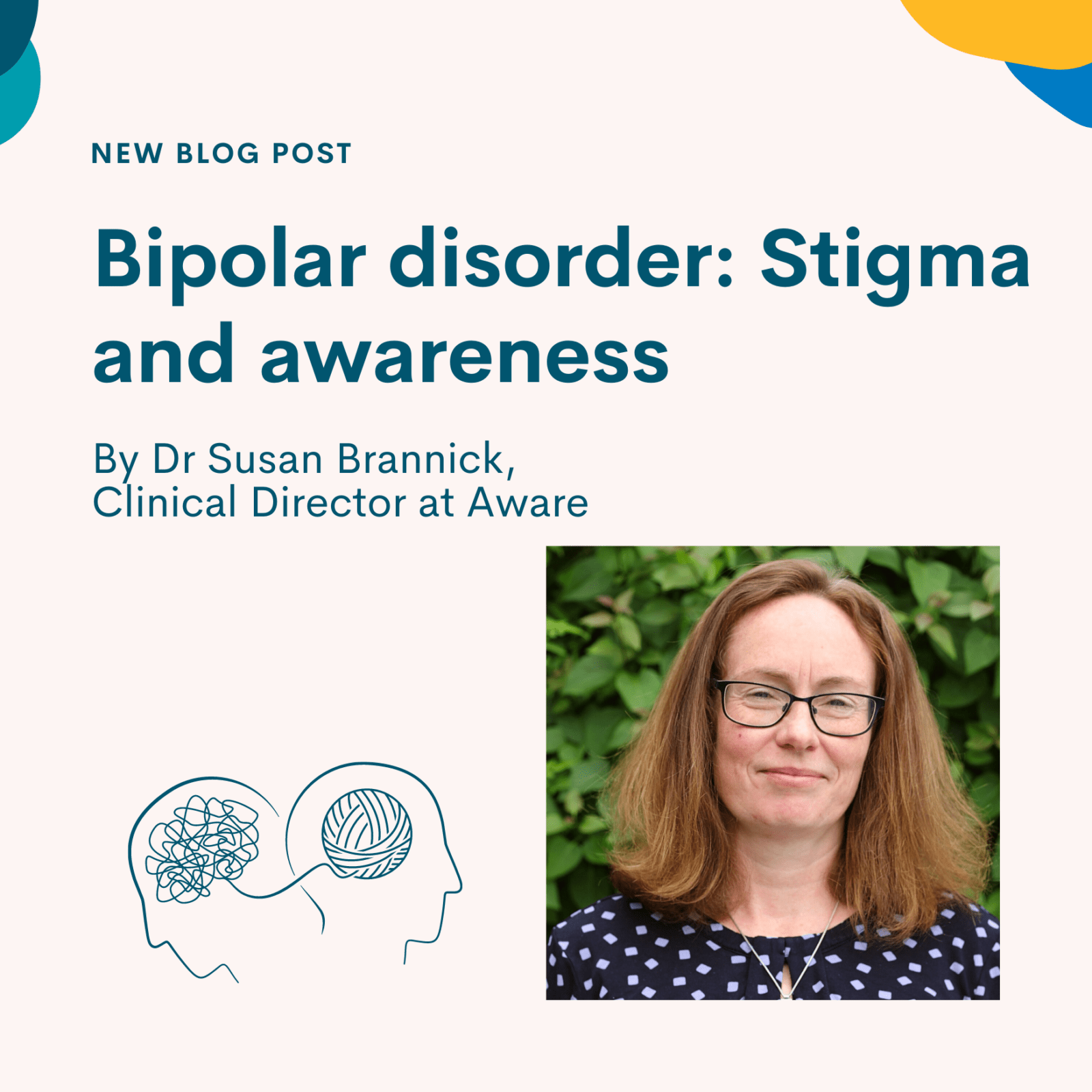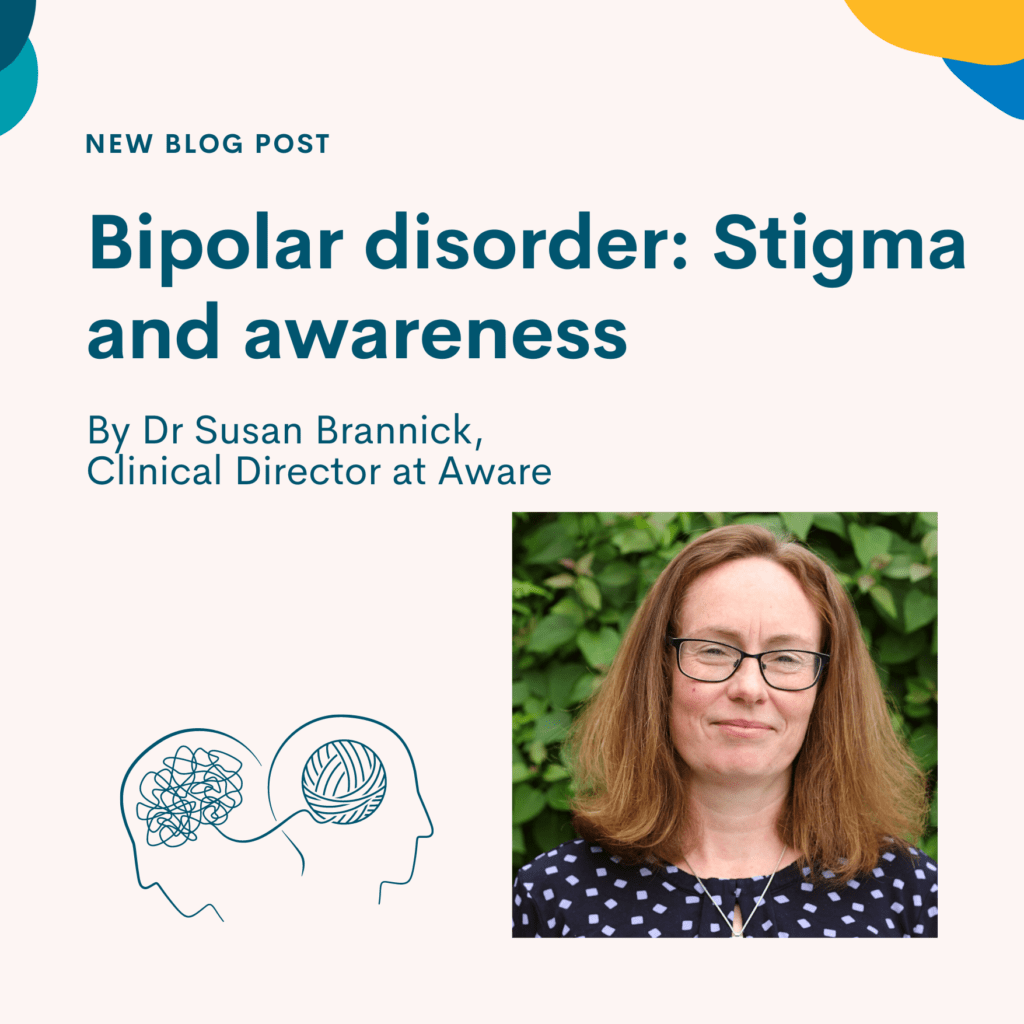
This March we celebrate World Bipolar Day on the 30th of the month. The theme this year is #BipolarTogether. The day aims to raise awareness, educate, inspire hope, and challenge stigma about bipolar disorder.
Bipolar disorder is a serious mental health condition that is characterised by extreme changes in a person’s mood, thoughts, and behaviours. These mood changes will be severe enough to be diagnosed as a mental health condition and are likely to significantly impact on how possible it feels to manage day to day life, during an episode. People living with bipolar disorder will have stable moods in between. These periods of stability can last days, weeks and years at a time. Every person’s experience with bipolar disorder is unique.
According to a survey carried out by Bipolar UK, 72% of people did not know anyone else with the condition when they were diagnosed. This speaks to the potential isolation many may face when initially receiving a diagnosis of this mental health condition. In the same survey, 67% of people reported that they received no advice on self-management with their diagnosis. Those figures are surprising given the seriousness of the condition and reinforce the importance of the yearly World Bipolar Day to raise awareness and address stigma.
A recent systematic review of stigma in bipolar highlighted that stigma is ‘one of the most common and challenging social issues that affect people living with bipolar’. They suggest stigma can be unpacked into three categories. Lack of knowledge, (ignorance or incorrect information), prejudice, and discrimination. This can make life difficult for people living with bipolar as, not only is there the task of managing the condition and living well, there is also the task of facing prejudice, discrimination or ignorance from the wider community and the public more generally. This is what Graham Thornicroft, a leading researcher in mental health stigma, calls ‘double jeopardy’. He notes that many people describe stigma as worse than the condition itself. Thornicroft describes stigma in mental health more generally as including the following: “misunderstanding or ignorance of the nature of mental illness; strong negative feelings towards people with these conditions; and social actions that marginalise or exclude people with mental health problems”.
The systematic review found that many people and their families experienced different levels of stigma with consequences of feeling disrespected and discriminated against. These experiences then led to social withdrawal and exclusion. Social stigma can be even more destructive when people accept and internalise these negative views from the community, becoming self-stigma. Self-stigma can impact on self-management and self-care in bipolar disorder.
Interventions to reduce stigma have included awareness and education campaigns, with specific anti stigma campaigns directed at health professionals, law enforcement and criminal justice settings. Thornicroft compares the work and progress on stigma to that of ending racial discrimination, in that in considering in the last 40 years, progress has been made, however there remains much to do.
Thornicroft believes ending mental health stigma is an achievable goal, requiring a committed approach to make lasting changes. Here at Aware we will continue to mark World Bipolar Day every year, contributing to the wider efforts to build more understanding of this condition, and support those and their families who are living with bipolar.
This blog is by Dr Susan Brannick, Clinical Director at Aware as part of a monthly blog series.


